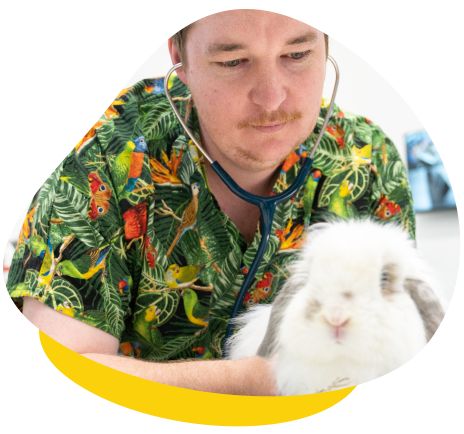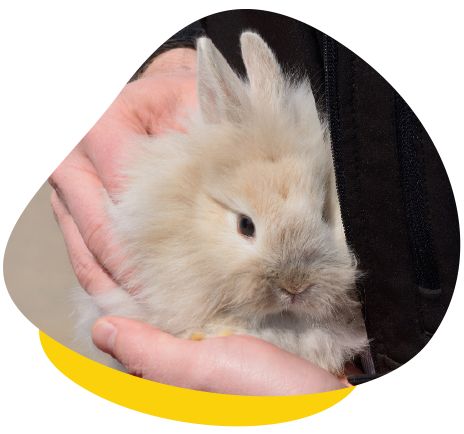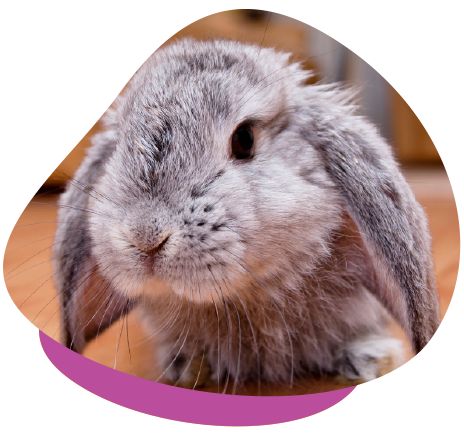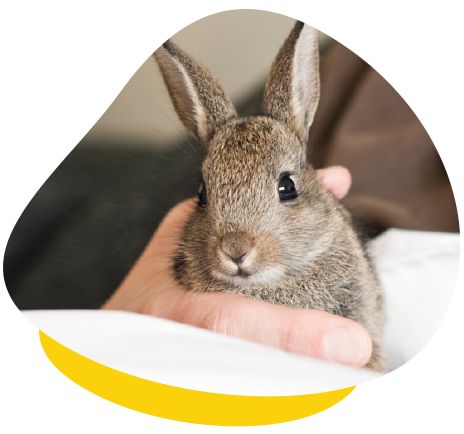Desexing, otherwise known as sterilisation or neutering, is a very important part of the veterinary care of rabbits. The most common form of desexing is when animals undergo surgery to remove part of their reproductive tract, generally known as castration (males) or spay (females).
We recommend desexing for both male and female rabbits, as in most cases it can significantly increase their life expectancy and greatly benefit their general health and wellbeing.
In addition to eliminating the risk of reproductive cancers (mammary, uterine, ovarian, testicular), there are also behavioural benefits. Both males and females can develop unwanted behaviours such as urine spraying and aggression if not desexed at an early age.

Desexing Female Rabbits
Female rabbits undergo a spay (or spey), a term commonly used when sterilising female rabbits, which involves the surgical removal of the ovaries and uterus.
Studies have shown that up to 80% of female rabbits over two years of age will develop uterine cancer. Desexing eliminates the risk of uterine cancer as well as removes the chance of unwanted pregnancies.
Desexing Male Rabbits
Males undergo castration, which removes both testicles from beneath the skin, eliminating the risk of testicular cancer.
What Age Should My Rabbit Get Desexed
We recommend that rabbits be desexed between 4-6 months of age. Desexing around this age is generally considered optimal to prevent behaviours such as urine spraying, humping/mounting, biting, and aggression from becoming a normal part of your rabbit’s behaviour.

How Long Does The Desexing Procedure Take For My Rabbit?
In general, either surgery (castration or spay) is a day procedure where your rabbit is dropped off at our veterinary clinic in the morning, has surgery during the day, and then goes home that afternoon or early evening.

What Does The Desexing Procedure Involve For My Rabbit?
One of our rabbit vets will perform the desexing surgery, and a dedicated nurse will monitor and take care of your rabbit throughout the whole day and surgery.
Medication before, during and after the surgery is administered to ensure your rabbit is comfortable.
Intravenous fluid therapy is administered throughout the surgery, which gives us access to the cardiovascular system if required.
Once your rabbit is anaesthetised, the surgical area is shaved and sterilised. In females, the ovaries and uterus are removed, and in males, the testicles are removed. The surgical site is then sutured closed, and your rabbit is placed in a specialized warm enclosure to recover.
Your rabbit vet will call you once the surgery is complete and arrange a time for you to pick up your beloved bunny.
Before Surgery Care
Unlike other companion animals (dogs and cats), rabbits do NOT need to have food withheld before their scheduled surgery. In fact, food and water can be made available to your rabbit right up until they are about to head into surgery.
Post-Surgery Care
After surgery, your rabbit may be a little bit quieter than usual. Keep them warm and ensure food and water are easily accessible. Pain management is critical in your rabbit’s recovery, and you will be provided with oral pain medication to administer following the surgery.


How Much Does It Cost To Desex My Rabbit?
We have a range of options available including our HopStart package for rabbits which is a great value package designed for new rabbit owners. For up to date prices on this, as well as base desexing prices, please give your nearest Unusual Pet Vets clinic a call.

